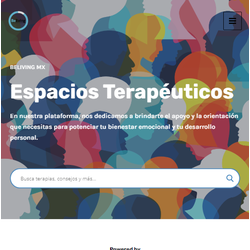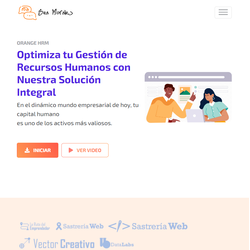
Fuerza Laboral
Artificial intelligence (AI) has gone from being a futuristic concept to an everyday reality in the workplace. Its effects are beginning to be felt in virtually all sectors, and Human Resources (HR) areas are no exception. The integration of AI and automation into work processes is redefining not only the way organizations operate, but also how their employees perceive their future within them. In this context, the challenge is to find a balance between technological adoption and human well-being.
Employee Perception of AI: Concern and Uncertainty
The accelerated introduction of AI into the workplace has generated a mix of expectations and concerns among employees. A recent study shows that 35% of workers express fear of the rise of artificial intelligence and the job uncertainty that this transformation entails. This concern is not unfounded. Automation and AI are beginning to replace repetitive and routine tasks in many industries, leading some workers to wonder if their jobs will be secure in the coming years.
Uncertainty lies not only in the potential loss of jobs, but also in the need to adapt to new technological tools and skills that, for many, represent a challenge. The fear of being left behind in the labor market is tangible, especially in sectors that have not historically had a high technological penetration. However, these fears also open the door to a necessary conversation about how companies can support their employees to navigate this new work reality.
The Transformation of Human Resources in the Age of AI
In this scenario, Human Resources departments play a crucial role in the transformation of organizations. The adoption of AI is not limited to improving operational efficiency; it implies a complete redesign of work models and the relationship between companies and their employees. HR priorities are rapidly changing to adapt to this new environment.
First, many companies are focused on redesigning processes and roles within the organization to effectively incorporate artificial intelligence and automation. This does not simply mean replacing repetitive tasks with algorithms, but a profound reconfiguration of how work is done, with the aim of freeing up employees' time for more strategic and creative tasks that require irreplaceable human skills.
In parallel, technology is also being used by HR to improve the employee experience. For example, AI is being applied in recruitment, streamlining processes such as reviewing resumes and identifying ideal candidates. It is also being used in talent management, to predict which employees might be at risk of leaving the company and offer personalized solutions that encourage their retention.
But the transformation doesn’t end there. The implementation of AI is also driving a renewed focus on employee well-being. More than ever, HRs are investing in benefits that improve the physical and mental health of employees, recognizing that comprehensive employee well-being is key to the success of any company in this era of change. The approach goes beyond the basics; it seeks to foster a culture that supports mental health, work-life balance, and financial well-being, with the implementation of retirement savings programs.
The Role of Training: Key to the Future of Work
Claudia Rodríguez, Career Products Leader at Mercer Mexico, explains that while the adoption of AI is essential for companies, it is equally important to invest in talent training. "As automation and artificial intelligence redefine the labor landscape, it is essential for organizations to consider how they can use these technologies to improve the efficiency and productivity of their employees, while ensuring fair and competitive compensation," said Rodríguez.
Training has become a priority. Companies need to help their employees acquire new skills that allow them to adapt to emerging technologies. This includes everything from technical skills to handle new tools to soft skills such as creativity, complex problem-solving and data-driven decision-making, which will be essential in an increasingly automated environment.
Preparing for the future of work is not just about teaching employees how to use technology, but also about fostering a change in mindset. Workers must be willing to adapt and continually learn, as technological evolution is constant. Companies, for their part, must invest in professional development programs and offer continuous learning opportunities that keep their employees at the forefront of technological trends.
The Balance Between Technology and Humanity
One of the key questions that arises with the integration of artificial intelligence in the workplace is how to maintain a healthy balance between technology and humanity. While AI offers an unprecedented opportunity to improve efficiency and productivity, it is also important to remember that human value remains essential in any organization.
AI can analyze large amounts of data and perform repetitive tasks at a speed that humans could not match, but there are human skills that remain irreplaceable. Creativity, empathy, the ability to lead teams and make decisions in ambiguous situations are qualities that technology cannot yet replicate.
That is why business leaders must find ways to use AI as a tool that enhances human capabilities, rather than replacing them. This means redesigning job roles so that employees can focus on tasks that truly leverage their strengths, while AI takes care of the routine and operational.
Opportunities for Companies
Despite the challenges, the incorporation of AI in HR and the workplace offers great opportunities for companies that know how to use it correctly. Those organizations that manage to combine advanced technology with a human talent development strategy will be better positioned to succeed in the future.
Automation and AI can help companies improve their efficiency, reduce costs, and offer better experiences to their employees and customers. At the same time, investing in employee well-being and training can increase talent satisfaction and retention, which ultimately contributes to the long-term success of the organization.
In short, artificial intelligence is transforming the work landscape at an accelerated pace, presenting both challenges and opportunities. Employees must adapt to an ever-changing environment, while HR departments are tasked with redesigning processes, investing in employee well-being, and fostering a culture of continuous learning. Companies that manage to find the right balance between technological adoption and human development will be the ones to lead in this new era of work. The key to success lies in seeing AI not as a threat, but as an opportunity to innovate, improve, and grow.


